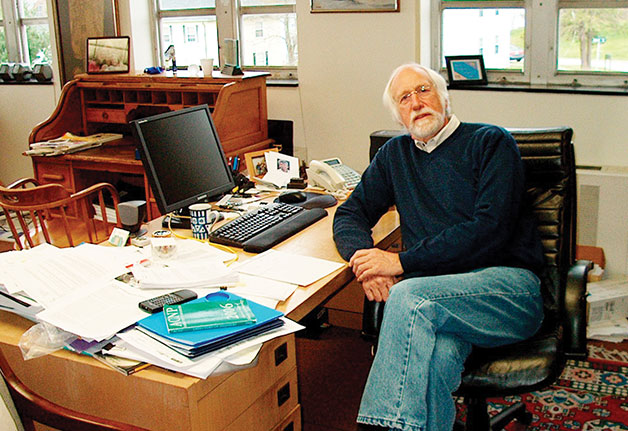Actress Jodie Foster was said to have been “horrified” when John Hinckley Jr., the assailant who in 1981 shot and wounded President Ronald Reagan and two others in an attempt to gain favor with Foster, was released two years ago from the psychiatric hospital where he spent 35 years after being found not guilty by reason of insanity. Others, including Reagan’s daughter, Patti Davis, had similar reactions.
Dr. William Twitty Carpenter Jr. ’58, however, points out that had Hinckley been found guilty, he would have served less time in prison. “Twenty-two years was the maximum he would have served in prison,” says Carpenter, whose testimony as the defense’s lead psychiatric expert in the 1982 trial helped secure the insanity verdict. “Public safety was not put at risk by his acquittal by reason of insanity. With a successful acquittal such as this, there is no limit to how long a person can be incarcerated in a psychiatric facility with extensive opportunity to treat and determine when it is safe to move them to outpatient supervised clinical care.”
Carpenter, now a professor of psychiatry and pharmacology at the University of Maryland School of Medicine and past director of the Maryland Psychiatric Research Center, spent 45 hours interviewing Hinckley in preparation for his defense and concluded that he suffered from schizophrenia. “I thought he would be kept at St. Elizabeth until Reagan died. He remained incarcerated a good while longer than that,” Carpenter says. “It was societal pressures that kept him there for more than three decades, not medical issues.”
Following the Hinckley verdict, many states rushed to change their laws to provide for a verdict of “guilty, but mentally ill,” which Carpenter says “releases a jury from the burden of taking mental illness into account” and allows them to send defendants to prison instead of facilities where they could get help for their illness. His testimony is credited with giving the field of psychiatry new credibility and increasing public awareness about severe mental illness.
Carpenter, a Rutherfordton, N.C., native who came to Wofford on a football scholarship and also was a star basketball player, has been focused on severe mental illness, especially schizophrenia, his entire career. “I wanted to understand the pathology of schizophrenia, what’s wrong and how do we treat it,” says Carpenter, who has made original and fundamental contributions in psychopathology, assessment methodology, testing of novel treatments and research ethics. He also has been a collaborating investigator with the World Health Organization’s International Pilot Study of Schizophrenia.
By Laura Hendrix Corbin
